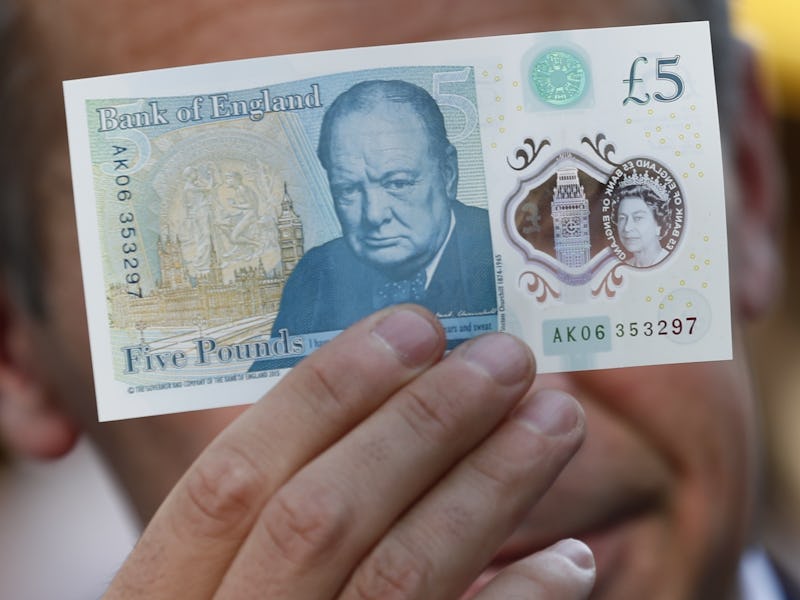The British 5-Pound Is Chewable. No, You Shouldn't Eat It

On Tuesday, the British central bank introduced a new five-pound note that makes old-school cotton paper money look like garbage. This thing can withstand hot water up to 104 degrees Fahrenheit, is hyper-resistant to counterfeit, and can be chewed up by unassuming kids and pets without causing harm. In other words, it’s as tough as the one-two punch of the famous faces printed on it — Winston Churchill and Queen Elizabeth.
Let’s get into the “chewable” part of the new fiver. While the old notes were printed on cotton paper, the new notes are made of polymer. That means instead of a cotton-linen blend these notes consist of a thin, flexible plastic film. One of the benefits of being made of polymer is that the material is more resistant to dirt than cotton paper. These have all been tested by health and safety experts to ensure that accidental chewing wouldn’t lead to illness.
“A number of notes get returned each year and are chewed by pets, including parrots,” chief bank cashier Victoria Cleland told the New York Times. But she also added, “We wouldn’t encourage people to swallow the notes.”
A parrot-cash connection.
She’s right: Dirty money isn’t exactly nutritious or tasty. New York University researchers conducted a comprehensive study in 2014 on United States dollar bills and identified 3,000 types of bacteria all over that cash, the sort that’s linked to staph infections, food poisoning, and pneumonia. Phillippe Etienne, managing director of a company that makes bank notes, told The Wall Street Journal, “A body-temperature wallet is a petri dish.”
Bank of England governor Mark Carney tests a new polymer five pound note as he buys lunch at Whitecross Street Market.
While more studies need to be done, research shows that polymer bills stay way less gross tha cotton ones. A 2010 study in Foodborne Pathogens and Disease found that while levels of bacteria vary, there are fewer on polymer bills in comparison to cotton.
So while the Brits should probably not be sticking money where their mouth is, Americans definitely should not. On the off-chance your puppy gets to your cash, the U.S. Department of the Treasury will likely (and kindly) pay you back by check.